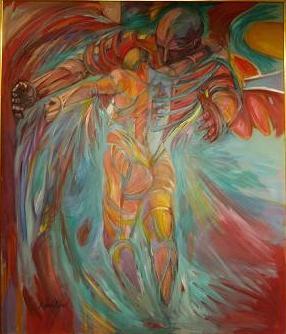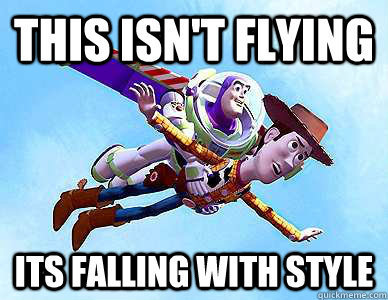Rachel Barenblat's Blog, page 139
December 15, 2014
Anticipating the return of the sun
Human beings have been paying attention to the ebb and flow of daylight for a very, very long time. Stonehenge, that iconic circle of stone slabs in Great Britain, was built sometime between 3000 BCE and 2000 BCE. Its central sight-lines point to the location where the summer sun rises on the summer solstice (June 21), and where the winter sun sets on the winter solstice (December 21).
In the fifth century BCE, in Persia, December 21 was the most important holiday of the year. It was called Shabe Yaldā, which means 'birthday eve.' According to Persian mythology, the god Mithra was born on the 22nd of December (to a virgin mother, no less! Dear Christianity: apparently the Zoroastrians came up with this sacred story first.) He symbolized light, truth, and goodness.
Among Romans, in early centuries of the Common Era, December 25 was the date of the festival of Sol Invictus, the birthday of the returning or unconquered sun. Sol Invictus was the official sun god of the later Roman empire. Elsewhere on the continent, among the Vainakh peoples of the northern Caucasus (think Chechnya), the 25th of December was the date of Malkh, the sun's birthday.
In the 4th century of the Common Era we find the first written documentation of the festival of Yule, a midwinter festival held by Germanic peoples of northern Europe around December 21. (An Old Norse variation on the name also appears in Icelandic eddas of the 13th century.) Yule traditions include the burning of a yule log, keeping a fire burning through the longest night until the sun begins to return.
Among pre-Christian Slavs, the 21st of December was Koročun, the day when the "old sun" of the old year was defeated by darkness; the day transitioned into Koleda, when the "new sun" of the new year is born. One Polish tradition for Koleda was hanging evergreen boughs decorated with apples, colored paper, stars made of straw, and ribbons. (So decorating evergreens was a solstice custom.)
Among Christians, the 25th of December is of course Christmas, which commemorates the birth of Jesus of Nazareth, a first-century rabbi whom they consider to be the son of God. He is referred-to in Christian scripture as "the light of the world." In the Christian scriptures there is a recapitulation of Isaiah's "The people who walked in darkness have seen a great light;" for Christians, this light is Jesus.
Jews celebrate light in the darkness of midwinter via the festival of Chanukah, which begins on the 25th of Kislev. (Because our calendar is lunisolar, that date moves around on the Gregorian calendar.) The moon of Kislev is always waning when the festival of Chanukah begins. A few days into Chanukah we get the moon-dark night between the old moon and the new moon -- truly winter's darkest night.
During each night of Chanukah we kindle an additional light in the chanukiyah, literally bringing more light into the world as each long winter night (in this hemisphere) passes and is gone. We light our candles in remembrance of the miracle of the oil which burned for eight days instead of for one -- a representation of God's presence in the world and in our hearts, burning ever-bright.
I love knowing that since time immemorial, human beings have marked the hinge-point when the earth tilts in the other direction and the days begin to change again. I love knowing that when I kindle my sweet little Chanukah lights, not only am I part of a chain of Jewish tradition of bringing light into the darkness, but I'm part of a practice which spans much of recorded human history.
Happy Solstice to all! Here's to the returning sun!
Related: Hanukkah and the Winter Solstice at My Jewish Learning by Rabbi Arthur Waskow
[image error]
December 12, 2014
Wintertime haiku
1.
Thumbnail punctures peel:
the reproachful cat
leaps off of my desk.
2.
Juncos, chickadees
flitting from roof to feeder
a quick minuet.
3.
Red boots, purple coat:
vivid colors bright against
snow and trunk and slush.
4.
Crumpled tissues rest
like soft misshapen snowballs
everywhere I go.
5.
Last summer's dry wood.
Woodsmoke: incense offering.
The sun will return.
I wrote this as a series of prose lines -- Midwinter means -- but then I started carving away at it, to see whether these images would work better in poetry, and I came away with five haiku. I think I like the haiku better; what do you think?
Shabbat shalom to all!
[image error]December 11, 2014
Favorite posts from 2014, part 1
 Over the course of 2014 I've spent countless hours writing the material which appears on this blog. Some of my posts come together quickly; others take days or weeks to polish and prepare. Either way, they move off the front page and they tend to disappear into memory. So each year, as December draws toward its close, I reread the year's worth of material and share excerpts from some favorite posts which I hope merit re-reading.
Over the course of 2014 I've spent countless hours writing the material which appears on this blog. Some of my posts come together quickly; others take days or weeks to polish and prepare. Either way, they move off the front page and they tend to disappear into memory. So each year, as December draws toward its close, I reread the year's worth of material and share excerpts from some favorite posts which I hope merit re-reading.
This year when I did my rereading, I found that there were more than ten posts which I hoped might have staying power. So instead of one top-ten list, I'll be sharing a handful of favorites in three posts over the course of the next week. Here are my favorites from the early part of 2014:
Both a snowstorm and Shabbat offer a break from ordinary workday realities. A time to cease the mechanisms of production and to relax, secure in the knowledge that there's nothing we're supposed to be doing, so we can just be for a change...
It was hard for me to understand Shabbat being like the wolf who causes a stir both before and after his arrival, but Shabbat being like the winter snowstorm which forces us to slow down, stop working, enjoy family time -- that's a metaphor which immediately resonates for me.
-- How Shabbat is Like a Snowstorm
I always try to hold on to the both/and. To see things from both sides. To celebrate what is wonderful without ignoring what's problematic: in Torah, in the literary sources I read, in my relationships, in my life. This is one of my central life-values. And I also try to live out this value when it comes to the contemporary Middle East...
When I am fortunate enough to be able to travel to the Middle East (and when I'm at home, reading blogs and newspapers as widely as I can) I try to stay open to the tension between [opposing] truths. I try to remember that the reality is always more nuanced, more beautiful and more painful, more complicated, than any of the easy stories anyone wants to tell.
-- The spiritual work of wrestling with the both/and
Perhaps a new prayer should be composed to recite before taharah in cases where cremation has been chosen. That prayer could gently remind the soul that in life it made this choice, and ask for God's gentle care as the soul returns to the Mystery from which it came. Our sages teach (Mishnah Yoma 8:9) that "God is the mikveh of Israel," and that when we seek to immerse ourselves in divine presence (e.g. during Yom Kippur) God's presence purifies us. A prayer for taharah before cremation could assert that as the water we pour cleanses the body, a return to God's enfolding presence purifies the soul, and that that return takes place regardless of what becomes of the body's component molecules.
-- On taharah before cremation
All of this may sound unusual to those of us who are most familiar with the Jewish practice of liturgical prayer, known in Hebrew as tefilah. We may have the notion that meditation is something Buddhists do on their cushions, whereas Jews engage in something different altogether! Except... I'm not so sure it's all that different. I think there's a clue to the meditative quality of Jewish worship in the very word we most frequently use to mean prayer.
-- A short history of Jewish meditation
Here's the thing, though: most of us don't live on retreat. Most of us don't have the luxury of beginning the day in perfect silence and contemplation, gliding into a joyful morning service, and only then engaging in trivial or ordinary speech. Most of the people I know wake up to someone's needs: the needs of children, the needs of parents, the needs of a sick or disabled partner, the needs of animals. Who has the luxury of avoiding "trivial matters" until after morning prayer? Certainly not me.
-- Privilege, prayer, parenthood
[image error]Favorite posts from 2014, part 3
In this post: another handful of excerpts from, and links to, my favorite posts from 2014. This is the third and final installment in the series. Enjoy!
These are rocky shoals and unfamiliar waters, and there is no lighthouse guiding the way. Nothing is easy. And my heart overflows with emotion, because this is not what I want for my loved one, and I am entirely powerless to effect any change at all. What does it mean to try to maintain optimism in the face of a beloved's suffering? What does it mean to try to maintain hope? To what extent am I obligated to cultivate hope even if my loved one can't join me in feeling that hope?
-- Sorrow and illness, from near and from far
It's arguable that the beginning of every regeneration, for the Doctor, is an opportunity for teshuvah. The Doctor travels through space and time trying to do good. He inevitably falls short somewhere along the way. And he always gets the chance to start over. Perhaps these are my rabbinic lenses at work, but I've always experienced Doctor Who as a fundamentally Jewish show (even though there's no explicit Jewishness in it) because of how the show's structure centers around the idea of beginning again. Toward the end of the first episode of the new season, the Doctor reflects, "I've made many mistakes. It's about time I did something about that." That's the quintessential move of teshuvah: recognizing that we've missed the mark, resolving to orient ourselves in a new direction, and aiming to do better the next time the opportunity comes along.
-- New beginnings, Doctor Who, and teshuvah
It's a good thing my rabbinic smicha wasn't contingent on my sewing skills. That was the thought which kept going through my head as I struggled with carefully snipping seams (without snipping fabric), placing careful stitches to keep the seams from unravelling further, and then stitching four squares of folded fabric to make reinforced corners. I am not a seamstress, so this pushed the limits of my sewing capabilities. My stitches are far from beautiful or even. But they're functional, and that's what matters. Then I lined up threads in groups of four -- three short, one long -- and pushed them through the reinforced corners. And then I twisted them and tied them. By the time I was done, I had made myself a tallit katan.
I try repeatedly to photograph our sukkah in a way which would show you what it looks like, what it feels like. But as with the panorama of the autumnal Berkshire hills, the pictures of the sukkah don't capture its reality. Autumn light streaming past golden tinsel garlands and shiny glitter pumpkins, the endless soft rustle of the roof, the little lights which gleam at nightfall. All I can capture are glimpses.
We need a larger framework of conflict transformation. We need to find a way to lift ourselves up, out of the positions we already hold and the things we've already tried. We need to seek to see the situation from a God's-eye view in order to create a path toward a different future. The Sfat Emet teaches that from where God sits (as it were) there are no binaries, no us/them, just goodness and oneness and love. As human beings we all have to find a way to see each other through God's eyes.
-- There has to be another way
Like Buzz Lightyear, the toy who grew into a mensch when he recognized who he was, we have limitations. We can't keep our lives on a perpetual course of ascent. But if we can learn to embrace the journey, we can turn our falls into opportunities to soar. Buzz, like Joseph, is arguably pretty conceited when his story begins. But by the end of the film he relinquishes ego with the very words which had felt disparaging to him at the start of the film: "This isn't flying -- it's falling with style!"
[image error]
Favorite posts from 2014, part 2
Recently I shared excerpts from, and links to, a handful of my favorite posts from early in 2014. Here's the next installment in that series.
Ethan makes the case that homophily -- listening only to people like ourselves; that phenomenon referenced in the saying "birds of a feather flock together" -- can make us ill-informed about the world. Being a rabbi, I'm inclined to frame that same truth in religious terms. I think we have a religious obligation to broaden our sphere of understanding. Every person in the world is made in the divine image. No matter where they're from, or where they fall on the political spectrum, or where we might agree or disagree.
-- Listening across our differences
We never really know all of what's arising in someone's head and heart, or what anxiety or sadness they may be carrying. A fear, a difficult diagnosis, distance from a loved one, regret... we hold a lot of things in our hearts, and many of them are not easy to sit with. // In such a situation as this -- and this is the situation in which we all live, whether or not it's particularly acute at any given moment -- what could be more important than being kind?
-- Be kind
Stories are always interconnected. I can't tell the story of my life without at least touching on a lot of other people's stories: my parents, my grandparents, my teachers, my spouse and child, my friends. I'm tremendously grateful for that. I have a sense for how fortunate I am to have a life which is so rich in connections. And sometimes those connections mean I need to think about what I write and how I share. Not everyone favors the spiritual practice of living one's life in the wide-open. And not every story is mine to tell, even if it impacts my story in a profound way.
Our leader offers the teaching from Bawa that one should seek with every breath to say a prayer asserting that there is nothing else but God. And I think: kol haneshamah tehallel Yah, "let every breath praise You." And I think of the meditation practice which maps the four letters of the Holiest Name onto every breath: before breathing, yud; inhale on heh; hold the breath vav; exhale on heh. And I think: ein od milvado, "there is nothing else but God." I think: our traditions have this in common.
If being in your usual online spaces is giving you more anxiety, or more grief, or more anger than you can comfortably manage, give yourself permission to step away. (Or if you need permission from outside yourself, consider it rabbinically granted!) Keeping up with every latest update -- every news bulletin, every blog post, every Tweet and status update -- may help us feel informed, but it doesn't necessarily help us emotionally or spiritually. Guard your own boundaries however you need to do.
-- Not everyone can carry the weight of the world
Reb Zalman could be very serious when the moment demanded, but he was frequently merry when he taught or when he led davenen. His eyes twinkled. He laughed a big beautiful belly laugh. He sang often while teaching -- lines of psalms or prayer, quotations, references, which were almost as likely to be in Arabic or Latin or Greek or Sanskrit as they were to be in Hebrew or Aramaic. He held an enormous wealth of kabbalistic and Hasidic teachings in his mind and was able to draw them forth and speak them in contemporary language, using metaphors which reached us where we are today.
[image error]
Midwinter means
Midwinter means a world of white outside my window. Fine lines of white limn every branch and twig. The distant hills vanish beneath a scrim of snow.
Midwinter means fragrant clementines like tiny hand-held suns. When I puncture the peel with my thumbnail, the cat gives me a reproachful look and leaps off of my desk.
Midwinter means listening to Värttinä in the car. I don't speak a word of Finnish but their music comes from long nights and crisp snow.
Midwinter means the decadent pleasure of hand lotion and lip balm softening my thirsty skin.
Midwinter means the pleasure of watching juncos and chickadees flitting to and from the birdfeeder on the deck. From feeder to railing to roof and back again.
Midwinter means a dozen kinds of hot tea, usually with milk. Black tea with apricot. Earl Grey in all of its variations. Chai. But green tea with toasted rice, I drink plain.
Midwinter means the eye takes a keen pleasure in vivid colors against the white and brown and grey of snow and trunk and slush. Red boots, purple coat.
Midwinter means I scatter crumpled tissues like misshapen snowballs everywhere I go.
Midwinter means the repetitive rhythm of wrapping paper, fold and crease and tape in place.
Midwinter means last summer's wood burning bright, a stand-in for the sun which will always return.
December 10, 2014
World to come
Winter funeral.
A forest of old coats
transports me
to my grandparents' closet,
waxy marbles underfoot.
In the world to come
there are no mothballs.
No resplendent lynx pelts
from the era before
anyone objected to furs.
No housecoats or slippers
cardigan sweaters
sequined poodle skirts
or wedding dresses
sheathed in drycleaning bags.
Only garments of light
woven from every kindness
every Shabbat candle
every word of gratitude
offered in this life
where we need layers
to protect
our fragile skin
our hidden hopes
our tender hearts.
The teaching that in the world to come we will wear garments made of light, woven out of the mitzvot we performed in this life, comes from the Zohar.
December 9, 2014
Seven stops
 Almost every time I'm humbled and honored to preside over a funeral, someone asks me why we make seven stops. It's Jewish tradition to pause seven times while carrying the casket to the grave. I lead the pallbearers a few steps, then stop and hold up a hand and they stop with me. Then we walk a few more steps, and pause. And again, and again, until we've stopped seven times. It gives the processional a strange, halting rhthm. It is a somber kind of dance.
Almost every time I'm humbled and honored to preside over a funeral, someone asks me why we make seven stops. It's Jewish tradition to pause seven times while carrying the casket to the grave. I lead the pallbearers a few steps, then stop and hold up a hand and they stop with me. Then we walk a few more steps, and pause. And again, and again, until we've stopped seven times. It gives the processional a strange, halting rhthm. It is a somber kind of dance.
In Talmudic times (the early centuries of the Common Era), it was customary for the funeral procession to stop and sit down seven times on the way from the grave back to the home, perhaps to shake off the spiritual residue of the cemetery. In the Geonic period (roughly 500 - 1000 CE), the pauses acquired a liturgical component, the recitation of words from Psalm 91 at each stop. In the modern era these seven stops happen not on the way from the cemetery back to the town, but at the cemetery itself.
Why seven stops? (For that matter, why stop at all?) The wonderful folks at Kavod v'Nichum ("Honor and comfort," probably the best Jewish burial resource on the internet) offer several historical explanations on their page about Stopping on the way to burial. But when I am asked, I don't usually dwell on the historical reasons for the practice. I tend to focus on the spiritual resonance of the lived practice, instead. First, I point out that seven is a in Jewish tradition.
Seven are the days of the week, the six days of creation plus Shabbat. So seven represents a perfect whole, a complete unit of time. The seven stops can represent the six days of creation plus Shabbat, or in a more metaphorical sense, the whole and complete unit of time which is the life of the deceased. The stops might represent the "six days" of the life from beginning to end, and the "Shabbat" of rest into which the beloved soul has now entered. They might represent the seven days of shiva ahead.
Seven are the lower sefirot, the qualities or aspects of God which we too can manifest in the world: lovingkindness, boundaried strength, balance, endurance, humility, rootedness, nobility. We cultivate each of these qualities day by day and week by week during the Counting of the Omer, the 7-week journey from Pesach to Shavuot, each year. And every life contains these qualities. In pausing these seven times, we honor these qualities as they manifested in the beloved soul who has now left this life.
Those are some reasons why the stops are seven in number. (There are others, but these are the ones which resonate most with me.) And as far as why we stop in the first place, I teach that we pause as a sign of our reluctance to complete this journey with our loved one, this final chance to accompany them as far as we can go. The Hebrew word for funeral is levayah, which means accompaniment. In pausing these seven times, we linger with our loved one just a little longer before we say goodbye.
December 8, 2014
Joseph, Falling With Style
I place before you the assertion that Buzz Lightyear, the fictional toy astronaut, is relevant to this week's Torah portion. (This is a classical technique of Torah exploration: begin with an assertion or a verse from somewhere else in Torah, then relate a piece of the weekly Torah portion, then loop back around to the prooftext with which the argument began. I'm using Toy Story as my prooftext. Yes, I am the mother of a five-year-old. Roll with me here.)
At the beginning of this week's Torah portion we meet Joseph. Joseph is the youngest of many children. He receives special gifts from their father, like that multicolored tunic, and he knows that daddy loves him best. He seems to be the center of his own universe; no wonder he dreams of sheaves of wheat and then of stars in the sky bowing down to him. What surprises me is that he tells his brothers about his dreams. Can he really not have recognized how that would make them feel?
Joseph's story is the classic example of descent for the sake of ascent. He is thrown into a pit... which is a necessary precursor to being lifted out. He is taken down into Egypt... which is a necessary precursor to rising in Potiphar's employ. He is thrown down into the dungeons... which is a necessary precursor to being lifted up and becoming Pharaoh's chief vizier. In English we say "What goes up, must come down." But in this story, before we can rise, sometimes we first have to fall.
Nobody wants to do that. It's human nature not to want to fall. We speak of depression as a pit from which it is difficult to emerge. We speak of difficult life experiences as narrow places, a kind of personal Mitzrayim. We don't want to "fall ill." We don't want to fall down. Professional acclaim comes from going up the ladder, not down it! We surround ourselves with possessions, college degrees, and even children as though those could guarantee us a life of nothing but ups.
But every life contains some falls. Everyone descends, sometimes. Into sorrow; into difficult circumstance; into sickness; into something. What's interesting to me is how Joseph handles his series of descents. By the time he's been thrown into Pharaoh's dungeons, he could easily be bitter and resentful. Time and again life has thrown him curveballs. Surely this is not where he expected his journey to take him. He could be forgiven for railing against the unfairness of it all.
But he doesn't. Instead Torah tells us that "God was with him." Torah says that four times. I'm not sure whether God is with him because he's humble, or the other way around, but he's gained some humility along the way. When the cupbearer and the baker come to him in prison to ask him to interpret their dreams, he says "surely God can interpret!" He knows now that he can interpret dreams not because he's such a bright guy, but because he opens himself to the presence of God.
And God is with him, even when he falls down. For me, this year, that's the lesson of this week's parsha: that the Source of All Being is with us even when we fall. That sometimes it's through our falling that we become able to experience God's loving presence, as close to us as our own heartbeat. And that falling can be a precursor to rising -- can, in fact, spark a kind of rising even if our circumstances seem bleak. Maybe once we've been "down," we can more wholly appreciate being "up."
Like Buzz Lightyear, the toy who grew into a mensch when he recognized who he was, we have limitations. We can't keep our lives on a perpetual course of ascent. But if we can learn to embrace the journey, we can turn our falls into opportunities to soar. Buzz, like Joseph, is arguably pretty conceited when his story begins. But by the end of the film he relinquishes ego with the very words which had felt disparaging to him at the start of the film: "This isn't flying -- it's falling with style!"
What would it feel like to emulate Buzz and Joseph, to embrace "falling with style"? We can't keep ourselves from falling sometimes... but if we have faith in the journey, and learn to cushion our fall (whether with balls and trampolines, as Buzz does, or with spiritual practices to keep us resilient), maybe we can find gracefulness -- and even grace -- in the journey of life's perennial glide.
December 7, 2014
Alone and not alone: a brief d'var Torah on Vayishlach
 Here's the d'var Torah I offered yesterday morning at my shul for parashat Vayishlach. (Cross-posted to my From the Rabbi blog.)
Here's the d'var Torah I offered yesterday morning at my shul for parashat Vayishlach. (Cross-posted to my From the Rabbi blog.)
"Jacob was alone, and a man wrestled with him until dawn."
Torah just told us that Jacob was levado, solitary, alone. And then Torah tells us that Jacob wrestles all night with an unnamed man, which in Torah usually means an angel. An angel, in Torah terms, isn't a creature with wings who plays the harp on a cloud. An angel is a shaliach, a messenger of the divine.
Jacob was alone -- except for that messenger of the divine, that representative of divine presence. God can't be seen or touched. Maybe that's why God sent that angel: because God knew that on the eve of meeting his brother again after so many years, on the eve of what could have been another fight or could have been a joyful reunion, Jacob needed something tangible.
"Jacob was alone, and a man wrestled with him until dawn."
Even when Jacob feels at his most alone, he is never alone, because God is with him. Even when we feel at our most alone, we are never alone, because God is with us. When do you feel most alone: in the middle of the night? When you are grieving? When you lose sight of hope? When you hear terrible news? Camped by the riverside, Jacob must have felt alone in those ways... but he wasn't alone, and neither are we. We are loved by unending love, and that love is always with us.
At the end of the wrestle, Jacob says "I will not let you go until you bless me." In return the angel blesses him with a new name, Yisra-El, the One Who Wrestles With God. God is with us not only as a loving presence, but also sometimes as a wrestling partner. Sometimes we overflow with love and gratitude toward God. Sometimes we struggle with God. And that's okay too. Because in the struggle, there's always the possibility of a blessing, if we're able to open ourselves to receiving it.
"Jacob was alone, and a man wrestled with him until dawn."
What do you struggle with most, right now -- and can you imagine finding God in that struggle? Maybe, in the wake of recent news about grand juries choosing not to indict police officers responsible for the deaths of unarmed Black men, it's a struggle for social justice, and the fear that the road to justice is too long and too difficult to tread. Can you find God in that struggle? Maybe it's a struggle with doubt, or with fear, or with illness -- personal circumstances, family circumstances, work circumstances. Can you find God in that struggle?
We are klal Yisrael, the inclusive-community-of-God-Wrestlers. As the Jewish people, the "children of Israel," we take our name from the name the angel gave Jacob on the banks of that river. We too can do what Jacob did: can take our struggles in hand and insist "I will not let you go until you bless me." Imagine saying that, right now, to the thing you struggle with most. What blessing would you receive? What blessing do you need to receive, to give you the strength and the courage and the hope that you need, so that the struggle can become not a grind but a joyous dance?
Image of Jacob wrestling the angel: by Karen Novak.
Rachel Barenblat's Blog
- Rachel Barenblat's profile
- 6 followers







